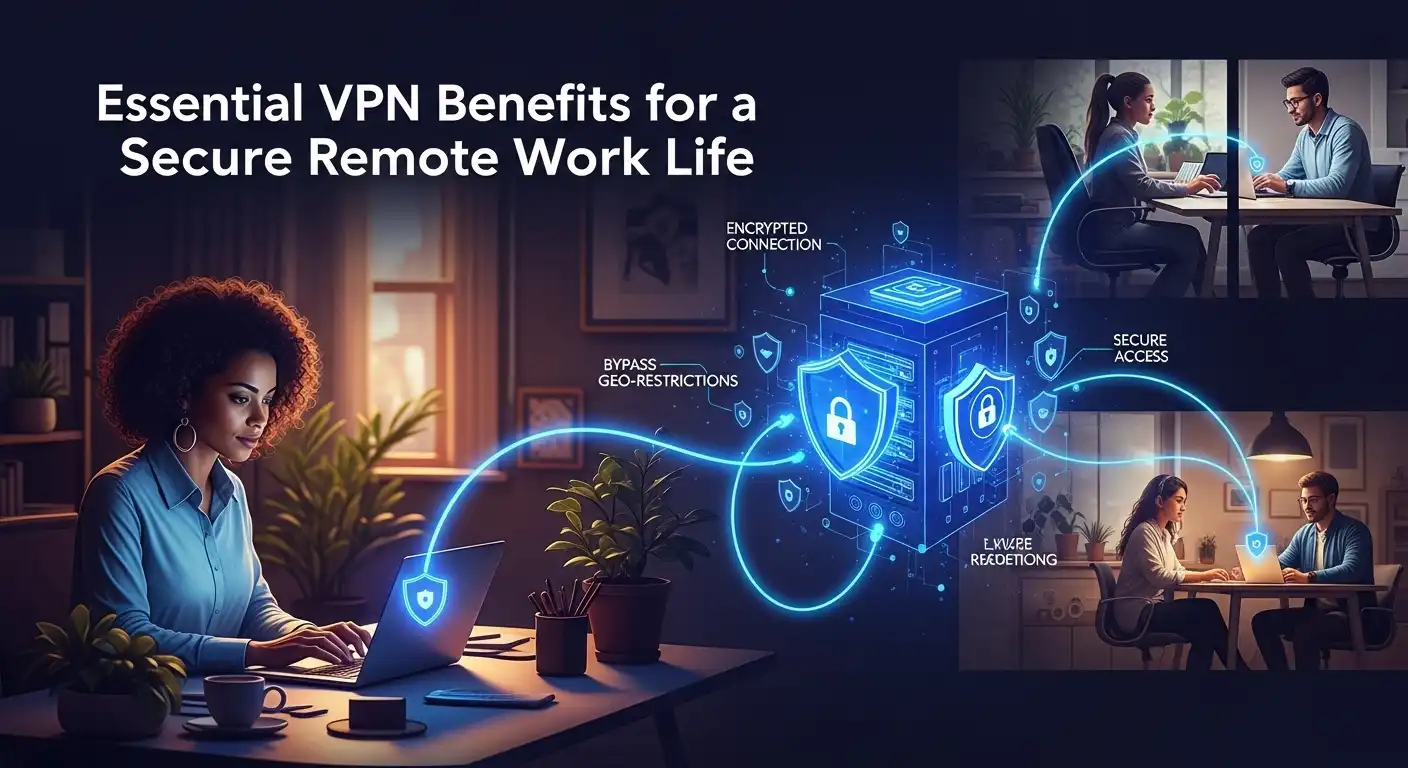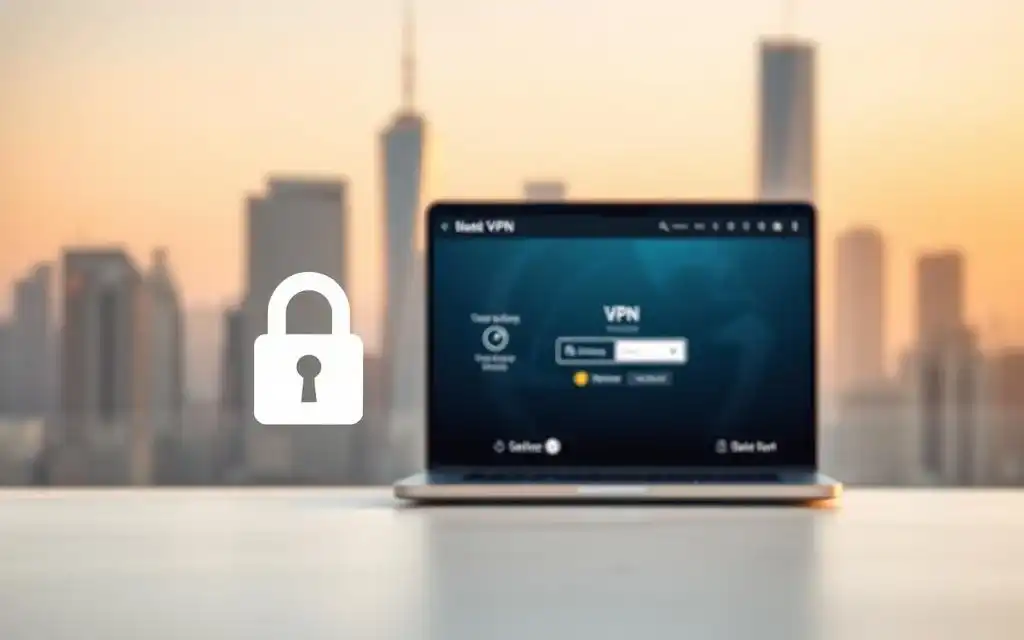The shift to remote work has revolutionized the modern workplace, offering unprecedented flexibility and freedom. However, this new paradigm also introduces a host of new security challenges. As employees connect from home offices, coffee shops, and co-working spaces around the globe, they move outside the protective digital perimeter of a traditional office network. This makes securing sensitive company and personal data more critical than ever. In this context, understanding the benefits of using a VPN for remote work is no longer a luxury but a fundamental necessity for any professional who values their security, privacy, and productivity. A Virtual Private Network (VPN) acts as a secure, encrypted tunnel for your internet traffic, providing an essential layer of defense in the decentralized digital landscape. Fortifying Your Digital Fortress: The Core of VPN Encryption At its very core, a VPN is a cybersecurity tool designed to protect your online activities from prying eyes. It accomplishes this through a process called encryption. When you connect to the internet through a VPN, it creates a secure, private "tunnel" between your device and the VPN server. All the data that travels through this tunnel—from confidential work emails and client files to your browsing history and login credentials—is scrambled into an unreadable code. This process ensures that even if a cybercriminal or any unauthorized entity manages to intercept your data stream, they will only see a jumble of nonsensical characters, not your sensitive information. This encryption is your first and most formidable line of defense against a wide array of cyber threats, most notably Man-in-the-Middle (MitM) attacks. These attacks are particularly common on unsecured public Wi-Fi networks, where hackers position themselves between your device and the connection point to steal data. With a VPN's encryption, your data is effectively armored. Think of it as sending your valuable information in a locked, armored truck instead of an open postcard. For remote workers who frequently rely on networks outside their control, this is a non-negotiable security measure. Furthermore, the quality of this protection hinges on the strength of the encryption protocols used by the VPN provider. Reputable VPN services employ military-grade encryption standards, such as AES-256 (Advanced Encryption Standard with 256-bit keys). This is the same standard trusted by governments and security agencies worldwide to protect classified information. When choosing a VPN for professional use, ensuring it supports robust protocols like OpenVPN and WireGuard is paramount. These protocols offer an optimal balance of speed and impenetrable security, ensuring your digital fortress remains unbreachable while you work. Masking Your Identity: IP Address Anonymity and Privacy Every device connected to the internet has a unique identifier known as an IP (Internet Protocol) address. This address functions like a digital home address, revealing your approximate geographical location and your Internet Service Provider (ISP). While necessary for the internet to function, your IP address can be exploited by advertisers, websites, and malicious actors to track your online behavior, build a profile on you, or even target you for cyberattacks. For a remote worker, this public-facing identity can be a significant liability. One of the most powerful benefits of a VPN is its ability to mask your real IP address. When you connect to a VPN server, your original IP address is replaced with an IP address from that server. If you are working from Jakarta but connect to a VPN server in Singapore, any website you visit or service you use will see you as if you are connecting from Singapore. This simple act provides a powerful layer of anonymity, making it incredibly difficult for third parties to trace your online activities back to you, thus protecting your personal and professional privacy. This IP masking has profound implications for remote work security. It prevents your ISP from monitoring and logging your internet activity, which they are often legally required to do. For freelancers and independent contractors, it adds a layer of professionalism by obfuscating their physical location from clients if desired. Most importantly, by hiding your true digital location, you become a much harder target for location-specific cyber threats or corporate espionage. It effectively removes a key piece of information that hackers could use to launch a targeted attack against you or your company. Bypassing Geo-Restrictions for Seamless Global Access Geo-restrictions, or geo-blocking, are digital barriers that limit access to content and services based on a user's geographical location. Companies often use these restrictions to comply with licensing agreements, manage regional service rollouts, or secure internal resources. For a remote worker, especially a digital nomad or someone on an international team, these restrictions can be a major roadblock. You might find yourself unable to access a critical company server, a specific software tool, or a research database simply because you are in the "wrong" country. A VPN provides an elegant and effective solution to this problem. By allowing you to connect to a server in a specific country, a VPN makes it appear as if you are browsing from that location. If you need to access a U.S.-based company intranet while working from Europe, you can simply connect to a VPN server in the United States. Your device is assigned a U.S. IP address, and the geo-blocks are instantly lifted. This capability ensures that your productivity is never hampered by your physical location, granting you seamless and secure access to the global resources you need to do your job effectively. Preventing ISP Throttling for Consistent Performance Internet Service Providers (ISPs) sometimes engage in a practice known as bandwidth throttling. This is when they intentionally slow down your internet connection based on the type of content you are accessing. Activities that consume a lot of data, such as high-definition video conferencing, large file downloads, or cloud-based collaboration, are common targets for throttling. For a remote worker, this can be incredibly frustrating, leading to lagging video calls, slow file transfers, and a general disruption of workflow. Because a VPN encrypts your internet traffic, your ISP can no longer "see" what you are doing





